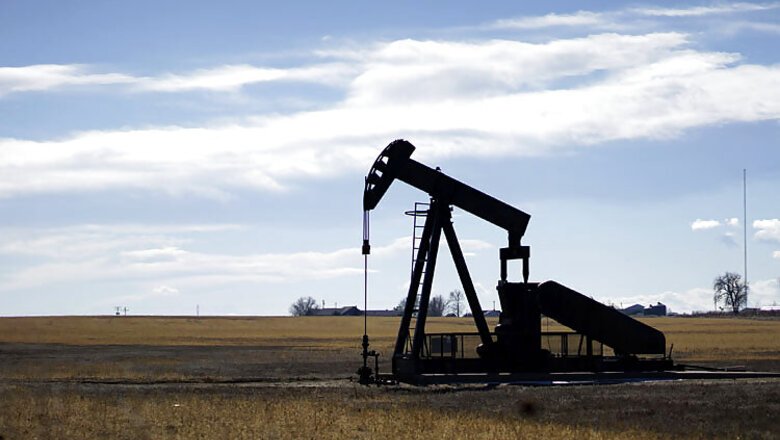
views
Dubai: Iranian crude oil production is likely to increase in 2016 but will take many years to reach its previous peak of 2.5 million barrels per day, Fitch Ratings has said, days after a controversial nuclear deal was announced between Iran and the world powers.
Iran's oil exports at the moment are around 1.1 million barrels per day (mmbbl/d) versus levels of around 2.5 mmbbl/d before 2012.
The deal announced on Tuesday could, if passed by the relevant legislatures involved and abided by, allow Iran to significantly increase oil output. The parties have outlined a staged approach which will only begin when Iran has met initial commitments.
These are far from trivial. They include the removal of the core from Iran's heavy-water reactor in Arak, the dismantling of centrifuges and the shipping out of the majority of Iran's stockpile of enriched uranium, Fitch said in a statement.
Then Iran will be able to increase production. Details of the condition of Iran's production infrastructure are sketchy, but with limited investment as sanctions have been increased it is likely that only a portion of this capacity can be brought back on-line without material investment, it said.
"We would expect to see some increase in production throughout the course of 2016 but that this would be less than half of the full 1.4 mmbbl/d that was lost, the statement said. The remainder will require significant investment and expertise - for which Iran is likely to want to partner with international oil companies.
These projects typically take many months to agree, as oil companies and governments maneuver for the best terms, and often years to implement. The agreed deal leaves open the option that sanctions could return if Iran is not seen to be honouring its commitments.
With such uncertainty, international oil companies are unlikely to rush to commit large parts of constrained capex budgets to Iranian developments, regardless of the benefits, it said.
"It seems likely that the additional crude in 2016 will delay the recovery in oil prices somewhat, but we still expect an improvement in prices next year as demand grows and the cuts in investment since the price collapsed show through in areas other than US shale," the statement said.
"However, we believe it will take two-three years for prices to recover to their marginal cost of around $80 (Brent) a barrel," the rating agency said.


















Comments
0 comment